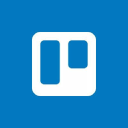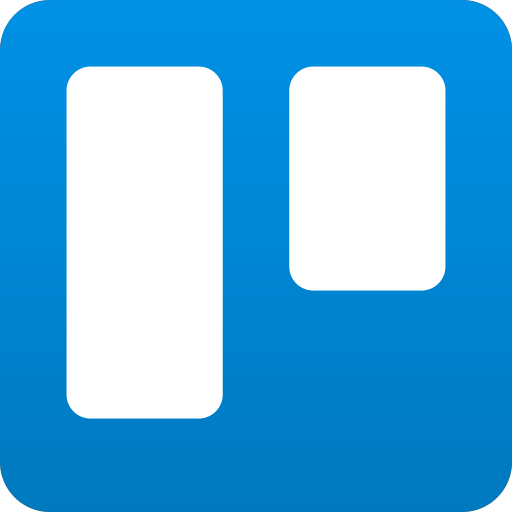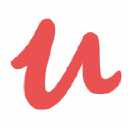My Personal Growth Experience Fueled Me To Create A Habit And Goal Tracking App
Hey all, want to announce and share an app called Wake: Goal and Habit Tracker. I made Wake because I believe that life is just way too short to waste it stuck in unwanted routines and ruts. These things make up hours of our days, and in the end, weeks, months, or years of our lives.
Two key things set Wake apart from every other goal and habit app: motivational fees and incremental improvement. Motivational fees are based on the concept that the fitness industry has been using for years to get people to stick to their fitness plans.
They do this by attaching a fee to not showing up to scheduled workouts or classes. Wake attaches motivational fees down at the pattern or habit level in small increments to get people to stick to their goals.
My expenses for the business have been relatively minimal since I am the one who made it. The things I did pay for like, app store fees, domain names, backend fees, state business entity fees, I just paid for out of pocket. The rest of my costs was just my own time that I would carve out to work on my project.

What's your backstory and how did you come up with the idea?
I have always been interested in growth in all areas of life. I have areas I don’t like about myself that I want to change, as well as relatively strong areas that I’d like to continue to grow in. Because of this personal growth, behavioral science, and psychology have always been topics that interest me.
I like to go through a book or audiobook making notes and highlighting like most people. Then at the end of it, I smush all of those things together into things I’d like to try in my own life to see what works.
My 9-5 is as a software developer and in many cases, we use the scrum methodology to move through chunks of work. Basically, you sprint for 2 weeks at a time and then reflect at the end of it on how you did.
I really took to this iterative process and especially loved the reflection piece of it. Recognizing areas that went well, and things that didn’t go so well so you could act on them the next cycle through. That’s how I stumbled upon the incremental improvement piece, one of the ideas that set Wake apart from other goal apps.
The other idea of motivational fees kind of just hit me like a ton of bricks one day. I was listening to some friends talk about how they couldn’t do something because if they did they had to pay a fee to miss their scheduled workout class. That led to me needing out and read more about the topic of the brain and what motivates people more, future possibilities or immediate consequences.
I found that we are all much more motivated by immediate consequences than we are by future possibilities. The reason for this is because our brains haven't evolved much in thousands of years. Our old brains see our future selves as strangers.
However, it is still very good at avoiding consequences and negative situations because it used to have to be to survive. So I decided to use the things our brain is naturally really good at in Wake to help people grow into the person that they want to be.
Take us through the process of designing and prototyping your app.
I started the project a few years out of college as a fun way to learn react-native. This was a language that I got pointed to through some colleagues because they knew that I was interested in mobile development. Also by knowing react and react-native you could basically write in the same style and write for web or mobile, I found that appealing. So I took a class on Udemy and did a few other small learning apps.
I quickly fell in love with the language and knew that I wanted the next step in my career to be using this language. I wanted to write something real and use the language heavily as a way to learn faster. So I decided to write something that I would use and love and was passionate about.
Once I had a rough idea of the app that I was going for, designing it started on a whiteboard for me. I would wireframe up one screen at a time. Moving on when I got to a flow that I liked. Occasionally I would add in wrinkles and things as seemingly good ideas would come to me. Little things like the ability to drag and drop to order goals or the things that inspire you and the ability to move patterns to different goals. Things like that just came from me using and testing as I was developing and being like it would be sweet if I could do this.
Describe the process of launching the business.
Launching wasn’t a huge ordeal since I wrote the app and app landing page. It was mainly just crossing t’s and dotting i’s making sure that things got to the right environments in the correct order. The usual app drama of making sure all your environments have the right “keys” and whatnot. Walking through all the features that use those pieces and making sure that they work as expected.
One that becomes successful and frees you from your 9-5 thus freeing up way more of your time. Then you can write or work on the next thing you believe in, not some stranger with gray hair or a board of gray-haired strangers.
After that, I started our social accounts. I didn’t want to get ahead of my actual launch because of varying app store approval times and never knowing when you will get rejected for some silly reason. I didn’t want to drum up hype for something I may have to drastically re-write or something. I am not a prodigy at socials but I have read there can be a benefit to drumming up hype, I just didn’t think it was worth the risks associated.
It took some time for the app to start getting downloads. I didn’t have any external help or paid marketing or advertising of any kind. In the first week I probably had around 25 organic downloads of people who just randomly found the app.
Since launch, what has worked to attract and retain customers?
I can’t point to one thing and say that’s worked because we still have a relatively small number of customers. I did spend a lot of time researching SEO and app store optimization and made sure to do all the tips and tricks to get those things right, especially in the app store.
Some of those things included:
- Getting the app name and title right and using it for keyword placement.
- Working in ratings and reviews into my app at the correct time and not in a pushy way.
- Do the research on good keywords and descriptions for your app.
I wanted to do everything in my power to potentially help people find my app in a very crowded store.
How are you doing today and what does the future look like?-
We just launched a few weeks ago. The future has a very bright ceiling with the way the app’s monetary strategy is set up with motivational fees. Also with the low overhead and costs that I have in the business.
Short-term goals for Wake are to get in front of a large number of people who the app may help. We are very much still in the “spread the word” phase. Ideally, that would turn into the first wave of users who would then use the sharing features in the app to invite or show off their progress across their own social networks. This would give the app a good word of mouth reputation and turn into consistent growth for people who use the app to grow.
Long term I’d like to keep working on our social campaigns to be able to leverage those channels to consistently inspire people and let them know that there is something different out there to help them get where they want to go.
Through starting the business, have you learned anything particularly helpful or advantageous?
The two things that I have been forced to learn that have been helpful have been graphic design and “social content savviness”. I have never been heavily into socials at any point in my life. My first accounts my significant others made for me out of frustration that they couldn’t put that they were in a relationship. Learning how these games work and the best way to use them as a tool to spread the word about what you believe in has been a fun experience.
The graphic design aspect started for the app with icons and things like that. I thought it seemed wasteful to pay someone to do something that I could just learn. So I started with my icon and things like that and kept learning. That crept into my landing page design and then slowly into my content for my social accounts and things.
What platform/tools do you use for your business?
As a dev with an app and a landing page for that site my tools are likely fewer than most. I leverage things like Firebase, Google Analytics; and the app stores to monitor the app and potential problems.
I don’t use any email or social tools yet. To do the graphic design things that I do I prefer Inkscape.
I really like Trello for all my development work as well as my business work. I occasionally will use draw.io to think through something foggy in my head.
What have been the most influential books, podcasts, or other resources?
Tools of Titans - Great for personal growth, to see the routines and habits of other people passionate about it in several areas of life. It also explores why they do these things and why certain things work and certain things don’t over time.
Atomic Habits - Great for exploring why people do the things they do. How to form lasting habits and break bad ones.
Mindset: TheNew Psychology of Success - Exploring the power of the growth mindset vs. the fixed mindset and what inspires lasting change.
The Courage to Be Disliked - Exploring why change can be so hard sometimes and have negative ripples.
Daring Greatly - Exploring shame, scarcity culture, vulnerability, battling perfectionism.
The Obstacle Is The Way - Exploring stoicism and mindset shifts to help as things come up in life.
Advice for other entrepreneurs who want to get started or are just starting out?
My advice for entrepreneurs is going to be geared towards developers in general because that’s what I know best, perhaps it will apply to people in other professions also.
For developers, the dream is usually to write something that you’re passionate about that frees you from your 9-5, which you usually aren’t so passionate about. So you ideally are going to write something that you love or believe in, or something that inspires you that becomes a passive income stream.
Hopefully, one that becomes successful and frees you from your 9-5 thus freeing up way more of your time. Then you can write or work on the next thing you believe in, not some stranger with gray hair or a board of gray-haired strangers.
The simplest way to get to this ideal state is to start with your monetization strategy first. You obviously need to have an idea for your app or site that you are really into. But before you start writing lines of code and building things, nail down your monetization strategy. When you get this crucial piece solid in your head of how your stream will best function it will be easier for you to efficiently build your thing.
I did not take this simple path. I started just going to write a free goal and habit app to help me grow, based on scrum sprints and reflections. Then as I neared the end of my project, like most devs, I began brainstorming my next project. I was like okay, I want this next one to be monetized so I can eventually stop working for “the man”. As I started to explore what monetization might look like for a new app it became clear that I should just try and weave it into my current idea also.
So I creeped myself pretty hard, unintentionally, and had to do a massive teardown and rewrite to get things as they should be. Scope creep to all you non-engineers is just changing things at the last second that cause rework. Don’t do that to yourself, start with how you want your stream to work and build cleanly the first time from that position.
Where can we go to learn more?

Download the report and join our email newsletter packed with business ideas and money-making opportunities, backed by real-life case studies.

Download the report and join our email newsletter packed with business ideas and money-making opportunities, backed by real-life case studies.

Download the report and join our email newsletter packed with business ideas and money-making opportunities, backed by real-life case studies.

Download the report and join our email newsletter packed with business ideas and money-making opportunities, backed by real-life case studies.

Download the report and join our email newsletter packed with business ideas and money-making opportunities, backed by real-life case studies.

Download the report and join our email newsletter packed with business ideas and money-making opportunities, backed by real-life case studies.

Download the report and join our email newsletter packed with business ideas and money-making opportunities, backed by real-life case studies.

Download the report and join our email newsletter packed with business ideas and money-making opportunities, backed by real-life case studies.









